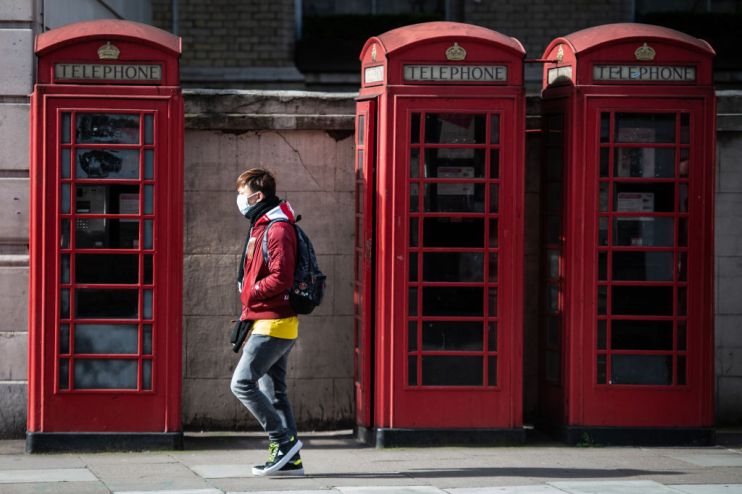London has highest level of antibodies in England, study finds

London currently has the highest level of Covid antibodies in England, a major new study has found, following a huge surge in coronavirus cases in the capital over Christmas.
Imperial College London’s latest React study used blood tests on over 155,000 people to test for immunity levels against coronavirus.
One in seven people in England tested positive for antibodies in the two weeks to 8 February, marking a significant increase since November when around one in 14 showed signs of immunity.
Antibodies signal either past infection or protection from a vaccine.
London
Among unvaccinated patients, London had the highest level of antibodies of any English region. Around 16.9 per cent of people in the capital tested positive — equivalent to around one in six.
London has the lowest vaccination figures of any region in the country, meaning the strong prevalence of antibodies in the capital is likely the result of high levels of infection over the festive period. So far, just over 1.5m vaccine doses have been administered in the capital — around 40 per cent lower than the total number of doses injected in the Midlands.
Coronavirus cases in London have plummeted from a daily peak of 19,872 on 29 December, to just 952 yesterday. During the peak of the third wave of coronavirus, the capital made up around a third of all infections in the UK.
Antibody prevalence also varied across ethnicity, with ethnic minorities recording the highest levels of immunity. Black people in England were most likely to test positive, according to Imperial’s React study, with around 22.1 per cent of patients showing some level of immunity. That compared to 20 per cent of Asian individuals, and just 8.5 per cent of white patients.
Scientists have noted that people from Black and Minority Ethnic (BAME) groups are much more vulnerable to Covid infection than other ethnicities, while death rates from Covid-19 are highest among Black and Asian groups.
London is the most ethnically-diverse region in England, according to the latest figures from the Office for National Statistics, with the highest proportion of minority ethnic groups.
Immunity and vaccines
The study also focused on the effects of vaccination and the level of immunity building across the English population. More than 17,000 participants in the latest round of the study had received at least one Covid-19 vaccine dose.
Data showed around 87.9 per cent of recipients over the age of 80 tested positive for antibodies after two doses of the Pfizer/Biontech vaccine. That rose to 95.5 per cent for under-60s and 100 per cent in those aged under 30.
Professor Paul Elliott, director of the programme at Imperial, said: “Overall there’s very high effectiveness in terms of antibody positivity from two doses of the Pfizer/Biontech, and also from a single dose in people who have had prior infection, that much we know.
“And also, although there is some fall off in positivity with age, at all ages we get that very good response to two doses of the vaccine.”
Vaccine confidence
The study also found that more than 90 per cent of people surveyed reported that they would be willing to accept, or had already accepted a Covid vaccination.
However, vaccine confidence varied by age, sex and also by ethnicity, dropping from 92.6 per cent among white patients to just 72.5 per cent among black participants.
The three most common reasons for vaccine hesitancy were scepticism about how well the vaccine works, worries about long-term health effects, and concerns about potential side effects.
Health secretary Matt Hancock, said it was “fantastic” that more than 90 per cent of people surveyed would accept or had already accepted a vaccine, as the UK vaccination programme continues to expand.
However, he urged anyone who has been invited for a vaccine but turned it down to book an appointment.
More than 18m people in the UK have received their first dose of the vaccine, including all top four priority groups.
The Prime Minister has set a fresh target of offering a first jab to all over-50s by 15 April, and all adults in the UK by 31 July.
Unveiling his roadmap for exiting lockdown earlier this week, Boris Johnson said the timeline had “only been made possible” by the success of the UK’s vaccination programme, promising that vaccinations would prove the light at the end of the tunnel after “a wretched year”.